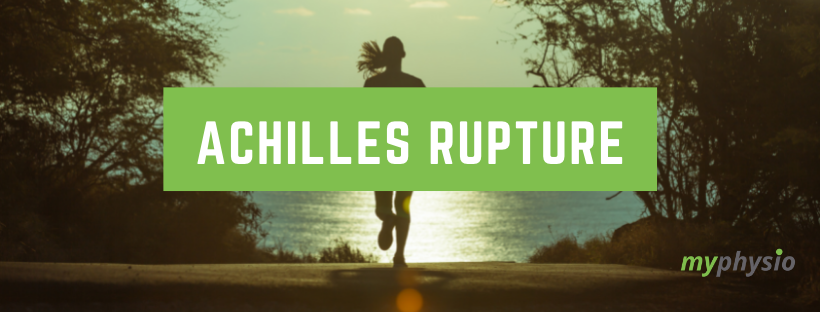
Achilles Rupture
Did you know that the Achilles tendon is the strongest in our body?
The Achilles tendon is what connects our calf muscles to our foot bone. Recent research suggests that 18 patients per 100,000 rupture their Achilles, with the highest prevalence being patients in their 30s-40s. The causes of these ruptures include sudden force to the foot, trauma and longstanding tendinopathy.
In most cases, an achilles rupture will produce an acute episode of pain and disability, patients will often report feeling as though someone has kicked or even shot them in the back of the leg. These patients are often transported to hospital for treatment. However, in some cases patients have less severe symptoms and can present to physiotherapy with ankle or calf pain. Physiotherapists take an in depth history from the patient and if the achilles tendon is thought to be a potential source of symptoms they will use a specific test to determine if the achilles is potentially ruptured or load the tendon to test its integrity based on the patient's presentation. If a rupture of this tendon is suspected, an urgent ultrasound will be organised or they will be referred to the hospital Emergency Department.
After an achilles tendon rupture is confirmed, patients are usually managed non-operatively under an orthopaedic surgeon. They will have their foot immobilised in a non-weight bearing cast with their toes maximally pointed, in what we call plantarflexion, for a period of about 6 weeks. This foot position is to place the achilles tendon in the most shortened position for healing.
The patient will then be placed in a moon boot with a set foot angle for a further 4-6 weeks. This angle will be adjusted throughout to gradually lengthen the tendon to where you are able to have your foot flat on the ground.
During this time, it is recommended to commence physiotherapy. Your physiotherapist will help you set goals that you would like to achieve throughout treatment, for example- walking independently, returning to work and returning to golf.
It is important to see a qualified physiotherapist for your rehabilitation to be specific to you and also to reduce the risk of re-rupture. Your physio will help you progressively load and stretch the Achilles tendon with specific exercises to help you reach your rehabilitation goals and get back to your regular activities.
